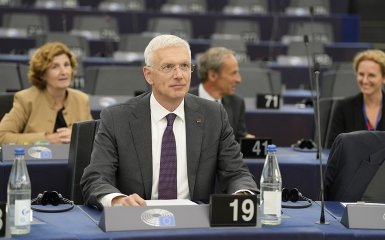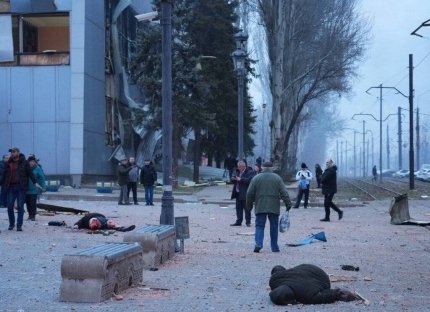According to the head of the Foreign Ministry of Latvia, Kristianis Karinshas, NATO partners, against the background of the growing threat of an attack by the Russian Federation, advise Great Britain to return mandatory military service and prepare for a possible total mobilization.
How the EU and NATO are preparing to repel a possible attack by the Russian Federation
Karinsh noted that mandatory military service was returned to Latvia after Russia's criminal attack on Ukraine.
All eligible males between the ages of 18 and 27 are now required to serve 11 months in the army.
We would highly recommend it. We are developing and concretizing the system of what we call total defense, which includes all parts of civil society, — said Karinsh.
The minister added that Latvia implemented the experience of Finland, which maintains a small combat-ready army and a very large and trained personnel reserve.
Tobias Ellwood, a former minister and former chairman of the British parliament's defense committee, said Britain should take Mr Carins' proposal seriously.
Having recently visited Finland, I saw clearly that they have the most impressive "total defense" model in NATO. As Putin secures another six years in office and seeks to emulate Stalin and expand his influence, we must also review our total defense model, Ellwood emphasized.
Meanwhile, Karinsh emphasizes that Europe will have to deal with "dangerous Russia" for a long time. In his opinion, Russia's "imperialist ambitions" will survive Putin himself.
Even after the end of this war — and all wars eventually end — we will still have a problem in the Russian Federation, which will not be directly related to Putin's rule, — warns the head of the Foreign Ministry of Latvia.
According to the minister, the death of Russian opposition leader Oleksiy Navalny in prison last month and the fake presidential elections in the Russian Federation this weekend only emphasize this harsh fact.
We do not see any signs that there is any movement in the Russian Federation that would nominate a leader who professes enlightened, liberal ideas. In the near future, this is not expected at all, — emphasized Karinsh.
What scenario can Putin choose for a war against NATO
According to Taras Zhovtenko, an international security expert of the Democratic Initiatives Foundation, in a comment to Espresso journalists, the Kremlin will most likely resort to a limited hybrid special operation with the help of agents and special services on the territory of one of the NATO countries.
It is more realistic and can catch the Alliance off guard. The format is not a full-scale war, but a limited hybrid operation. It can be reflected in the fact that the Russians can enter one of the NATO countries and seize a certain territory, — explains the analyst.
Zhovtenko emphasized that Russia could consider an attack from two bridgeheads.
In particular, the invasion can take place directly from the territory of the Russian Federation, or from the territory under the control of Belarus.
At the same time, Zhovtenko points out that the actions may be similar to those observed at the beginning of the invasion of the occupation army of the Russian Federation into Ukraine.
According to analysts, Russian propaganda will immediately start spreading the narrative that NATO failed to invoke Article 5 on collective defense.
Zhovtenko says that Russia's probable plan also foresees NATO's reaction. If they start threatening to respond, the Kremlin will resort to nuclear rhetoric.
Here, one can immediately recall Putin's words about the technical readiness of the Russian Federation for nuclear war. That is, in the event of such a scenario of events, Russia will again threaten with nuclear weapons, the expert noted.














